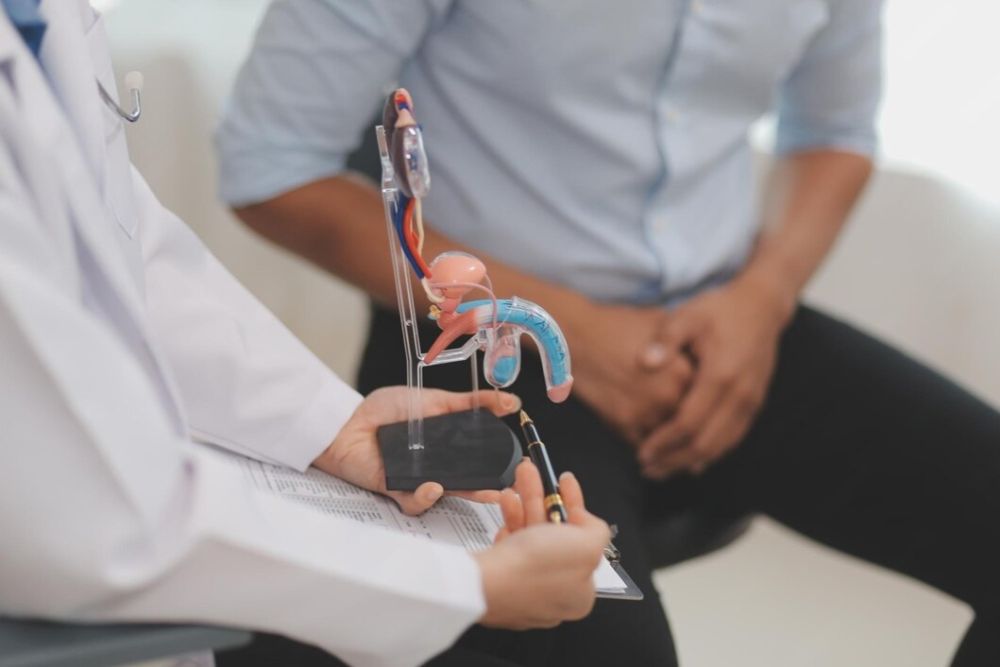How Urologists Diagnose and Treat Common Bladder Issues
Bladder problems can affect your comfort, daily activities, and overall health. If you’re experiencing symptoms like frequent urination, pain, or leakage, it’s essential to consult a medical professional. Urologists in Ambattur are specially trained to diagnose and treat a wide range of bladder issues with accuracy and compassion. At ESSVEE, we ensure patients receive personalized care using the latest medical technologies.
Whether it’s a minor irritation or a chronic condition, understanding how urologists approach bladder health can help you take proactive steps toward better wellness.
Common Bladder Problems Treated by Urologists
Bladder issues can range from mild to severe. Some of the most common conditions that urologists diagnose and treat include:
- Urinary Tract Infections (UTIs)
- Overactive Bladder (OAB)
- Urinary Incontinence
- Bladder Stones
- Interstitial Cystitis (Painful Bladder Syndrome)
- Bladder Cancer
Each condition requires a unique diagnostic approach and personalized treatment plan. Let’s take a closer look at how urologists typically handle these conditions.
How Urologists Diagnose Bladder Issues
Accurate diagnosis is the first step toward effective treatment. Here’s how urologists approach bladder-related concerns:
1. Medical History & Symptom Review
Urologists begin by discussing your symptoms, medical history, lifestyle, and any medications you’re currently taking. This helps narrow down potential causes.
2. Physical Examination
A physical exam may help detect any visible or palpable abnormalities in the urinary tract.
3. Urine Tests
Urinalysis and urine cultures are commonly used to detect infections or the presence of blood, protein, or other abnormalities.
4. Imaging Tests
Urologists may recommend imaging tests, such as an ultrasound, CT scan, or MRI, to obtain a clearer view of the bladder and surrounding organs.
5. Cystoscopy
This is a minimally invasive procedure that allows the doctor to view the inside of your bladder using a thin, lighted tube.
At ESSVEE, our experienced urologists utilize advanced diagnostic tools to ensure nothing is overlooked.
Treatment Options for Bladder Conditions
Once a diagnosis is made, your urologist will recommend a treatment plan. Here are some standard options:
Medications
Many bladder conditions can be managed with antibiotics, anticholinergics, or other prescription medications.
Lifestyle Modifications
Patients are often advised to make dietary adjustments, practice pelvic floor exercises, or regulate their fluid intake.
Minimally Invasive Procedures
Techniques such as bladder instillation, Botox injections, or nerve stimulation may be recommended for specific conditions.
Surgery
In severe cases like bladder cancer or structural abnormalities, surgical intervention may be necessary. ESSVEE’s urologists are skilled in both traditional and minimally invasive surgical techniques.
Why Choose ESSVEE for Urological Care in Ambattur?
At ESSVEE, we prioritize patient comfort and long-term outcomes. Our team of qualified urologists takes the time to listen, explain, and offer treatment options that best suit your health needs. Whether it’s a simple consultation or a complex procedure, you’ll receive expert care every step of the way.
Take the First Step Toward Better Bladder Health
Bladder issues should never be ignored or self-treated without professional guidance. If you’re dealing with symptoms that disrupt your routine, it’s time to consult experienced urologists in Ambattur







